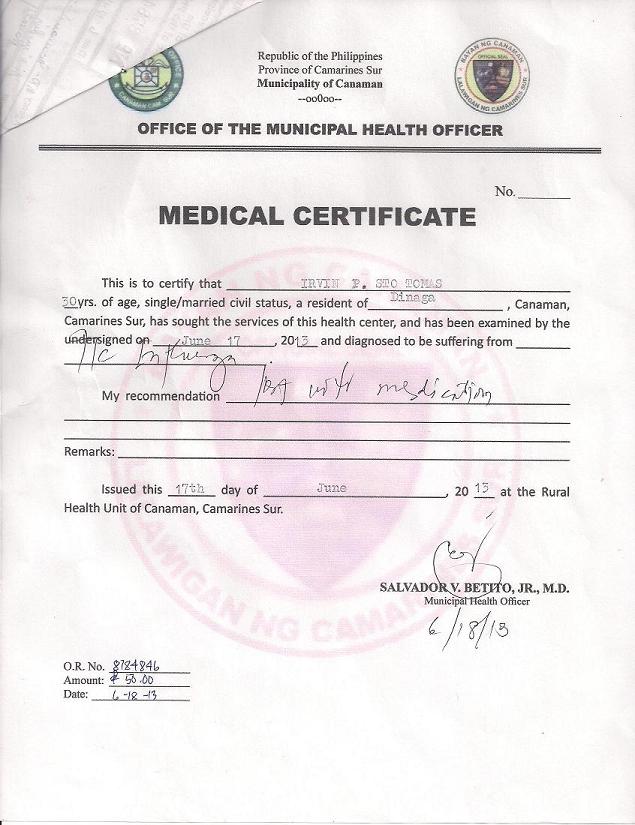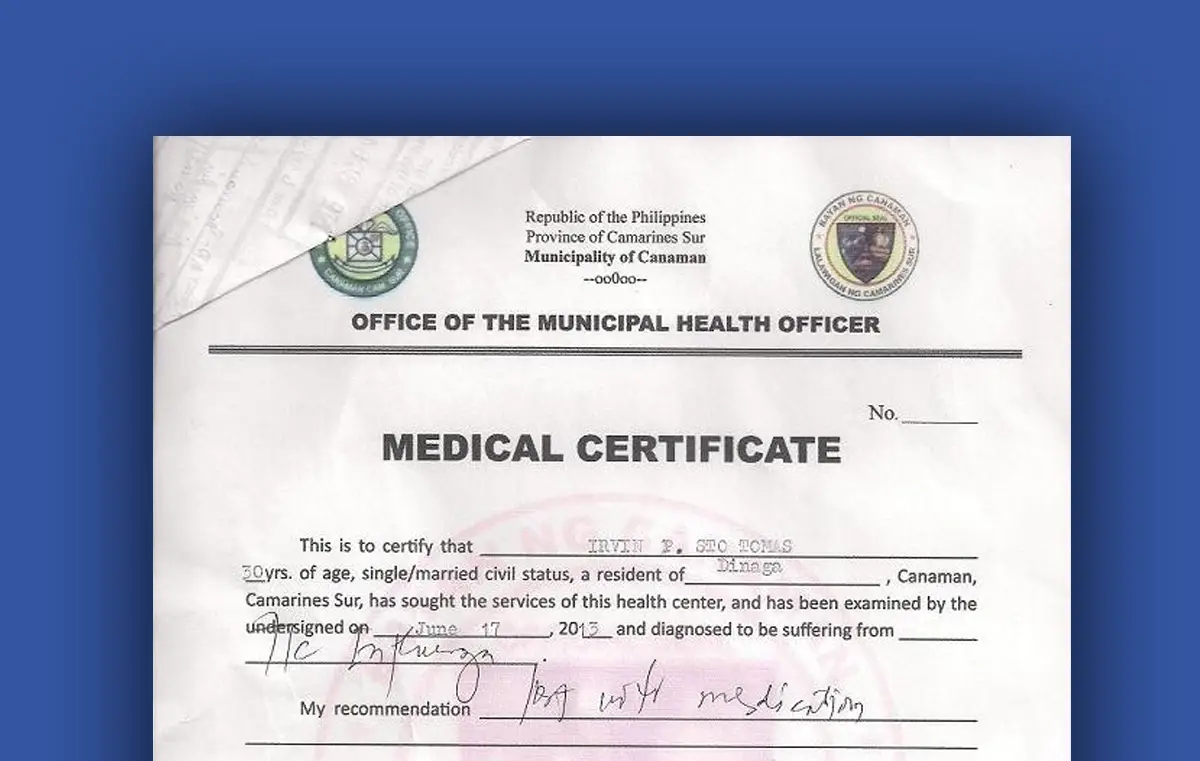A medical certificate is an official document issued by a licensed medical practitioner that confirms a person’s health condition. It serves various purposes, including proof of illness, fitness for work, and justification for medical leave.
Medical certificates are widely used by employees, students, travelers, and even insurance claimants. Understanding its importance, legal implications, and requirements can help ensure compliance with health policies.
Importance of a Medical Certificate
A medical certificate is crucial in various scenarios, including:
- Employment: Used to justify sick leaves or fitness to resume work.
- Education: Required by students to excuse absences due to illness.
- Travel: Some countries require medical certificates for entry, especially after the COVID-19 pandemic.
- Legal Documentation: Used in insurance claims, court cases, and disability assessments.
Types of Medical Certificates
Medical certificates come in different forms depending on their purpose. Here are the most common types:
1. Sick Leave Certificate
This document certifies that an individual is unfit to work or attend school due to illness.
Read: Excuse Letter | For Work & School | Tips, Format, and Sample
2. Fit-to-Work Certificate
Issued to employees after recovering from an illness, confirming that they can return to work safely.
3. Medical Clearance Certificate
Often required before undergoing surgery, engaging in sports, or traveling abroad.
4. Disability Certificate
A document verifying a person’s disability, often used for government benefits and insurance claims.
5. Maternity Certificate
A certificate for pregnant women, used for maternity leave applications and insurance purposes.

How to Get a Medical Certificate?
Obtaining a medical certificate involves several steps:
- Consult a Doctor: Schedule an appointment with a licensed physician or visit a hospital or clinic.
- Medical Examination: The doctor will assess your condition and determine if you qualify for a medical certificate.
- Request the Certificate: Ensure the document includes your name, date of consultation, diagnosis (if required), and doctor’s signature.
- Verify the Details: Check for accuracy to avoid issues when submitting it to your employer, school, or institution.
Medical Certificate Requirements
A valid medical certificate must contain the following details:
- Full name of the patient
- Date of consultation
- Diagnosis (optional in some cases for privacy)
- Doctor’s recommendations (e.g., rest period, fitness assessment)
- Signature and license number of the medical practitioner
- Hospital or clinic stamp (if applicable)
Where to Get a Medical Certificate?
You can obtain a medical certificate from:
- Hospitals: Most hospitals have outpatient services where doctors can issue medical certificates.
- Clinics: Private and government clinics provide medical consultations and issue certificates.
- Telemedicine Services: Some online platforms offer medical consultations and digital medical certificates.
Legal Implications of a Medical Certificate
A medical certificate is a legal document, and falsifying one can lead to severe consequences, including:
- Employment Termination: Submitting a fake medical certificate can result in dismissal.
- Legal Penalties: Forging a medical certificate can lead to fines or imprisonment in some countries.
- Professional Misconduct: Doctors issuing fraudulent certificates may face license revocation.
Digital vs. Physical Medical Certificates
With advancements in technology, digital medical certificates are becoming more common. Here’s a comparison:
| Feature | Digital Medical Certificate | Physical Medical Certificate |
|---|---|---|
| Accessibility | Easily sent via email or online platforms | Requires physical collection |
| Verification | Can include QR codes for authenticity | May require manual verification |
| Security | Digital signatures prevent forgery | Prone to loss or damage |
| Acceptance | Growing acceptance worldwide | Universally accepted |
How Long is a Medical Certificate Valid?
The validity of a medical certificate depends on its purpose:
- Sick Leave Certificate: Typically valid for the specified sick leave period.
- Fit-to-Work Certificate: Valid until the next medical evaluation.
- Medical Clearance: Valid for a few months, depending on the requirement.
Always check with your employer or institution for specific validity requirements.
Common Questions About Medical Certificates
1. Can an employer reject a medical certificate?
Yes, an employer can reject a medical certificate if it lacks authenticity or does not meet company requirements.
2. Can I get a medical certificate without seeing a doctor?
No, a medical certificate must be issued by a licensed medical practitioner after a consultation.
3. How much does a medical certificate cost?
Costs vary depending on the country, healthcare provider, and consultation fees. Telemedicine services may offer more affordable options.
4. Can a medical certificate be backdated?
Backdating a medical certificate is generally unethical and may be considered fraud.
5. Are online medical certificates valid?
Many organizations now accept digital medical certificates, especially from verified telemedicine services.
Conclusion
A medical certificate is a vital document for employees, students, and travelers. It serves as proof of health status and ensures compliance with policies. Always obtain a medical certificate from a legitimate healthcare provider to avoid legal issues.
By understanding the different types, uses, and legal aspects of medical certificates, you can ensure a smooth process when requesting one.
Check Also: Barangay Certification | Requirements | Guide How to Apply

